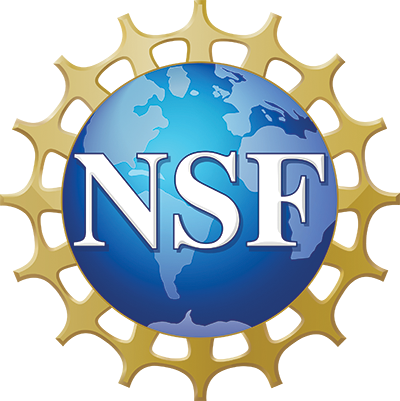Testimonials
Since its beginnings as the CI CoE Pilot, CI Compass' experts have engaged successfully with NSF Major Facilities to find cyberinfrastructure solutions.
Read below what some of our former engagements have to say about working with us.
The CI Compass team brings deep expertise in cyberinfrastructure for NSF facilities, and our experience working with them has been outstanding. ZEUS (Zettawatt Equivalent Ultrashort pulse laser system) is a national user facility that supports research in high-intensity laser-plasma interactions, a rapidly advancing field that seeks to answer fundamental questions in physics such as: how energy absorption mechanisms scale at extreme intensities; what signatures of radiation reaction and QED effects emerge; whether secondary particles such as positrons and pions can be generated in significant quantities; and how laser-driven radiation can probe material properties at unprecedented resolution. Beyond advancing discovery science, ZEUS is operated for the broader scientific community and plays a vital role in training students and postdoctoral researchers across the U.S.
In this context, data access and reliability are crucial for our diverse user base. CI Compass’s evaluation of our network infrastructure and their recommendations for bandwidth upgrades and improved user access to experimental data downloads have provided us with a clear roadmap as we prepare for increasing data demands. The team was exceptionally knowledgeable, organized, and thoughtful throughout the process, and their expertise in cyberinfrastructure has been instrumental in guiding our planning and decision making. Their contributions are already shaping our infrastructure upgrades, ensuring that ZEUS can meet the needs of the scientific community today while preparing for the challenges of tomorrow. We look forward to continuing this collaboration with CI Compass as ZEUS pushes the frontiers of plasma physics and extends its impact on both science and society.
- Franko Bayer, Senior Business Operations and Project Manager, University of Michigan, Center for Ultrafast Optical Sciences (CUOS)/Electrical Engineering
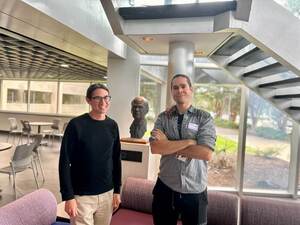
As an NSF major facility composed of seven user facilities with distinct disciplinary and instrumental focuses, the MagLab faces considerable technical and cultural challenges in bringing our cyberinfrastructure and data management up to modern standards. The MagLab’s engagement with CI Compass helped us to understand the shortcomings of our current approach and how it can be improved to serve each user facility and the lab’s overall mission. Thanks to this engagement and connections that we’ve made through CI Compass community events and the the FAIR Working Group, we are currently collaborating with another NSF major facility to implement new cyberinfrastructure. It will allow us to annotate and index the data and metadata generated by our users much more effectively, advancing our goals of making data FAIR, open, and AI-ready.
- David Butcher, Research Faculty, The National High Magnetic Field Laboratory (MagLab). August 2025.
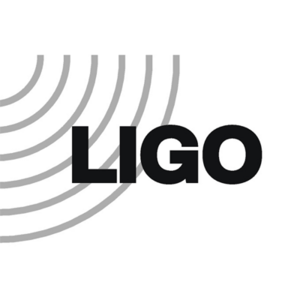
"It has been a great pleasure to work with the CI Compass team. They have provided extensive information about the possible use of a wide range of database technologies, with guidance on which one best supports different use cases. In addition, they have provided evaluation and testing of visualisation tools that can be connected to the data infrastructure and allow agile development of new dashboards while writing only simple Python code. This collaboration is highly useful for the development of the Gravitational Wave Transient Catalogue, a flagship data product produced by the LIGO Scientific Collaboration, Virgo Collaboration and KAGRA Collaboration. We look forward to using more CI Compass services in the future."
- Gregory Ashton Senior Lecturer at Royal Holloway, University of London and former co-chair of the LIGO Compact Binary Coalescence (CBC) working group

"CI Compass has introduced NeXUS to software tools and cyberinfrastructure approaches that will be beneficial to the facility and that our staff were not yet aware of. As a new facility, we are on a steep learning curve to support our variety of cyberinfrastructure needs. CI Compass has provided an efficient shortcut to identify and act on opportunities. I have already put ideas from CI Compass into action with my NeXUS colleagues, our Ohio State infrastructure partners, and collaborators at other user facilities."
-T.J. Ronningen, Facility Manager, NSF NeXUS, The Ohio State University
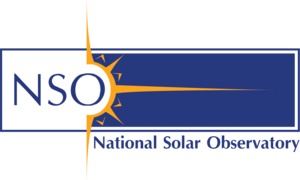
"Working with the CI Compass project has been a productive and rewarding experience for the NSF’s National Solar Observatory. We had a student fellow from the CI Compass Fellowship Program join us for a summer and found them to be a valuable addition, bringing a fresh perspective and thoughtful opinions that enriched our discussions. Their willingness to learn and tackle new problems allowed us to take on extra challenges. The positive attitude and proactive approach they took made them a valuable member of our team for the summer and their contributions are still being directly used in our production workflows. We look forward to seeing what they accomplish in their future endeavors!"
-Robert Tawa, DKIST Data Center Project Manager, National Solar Observatory
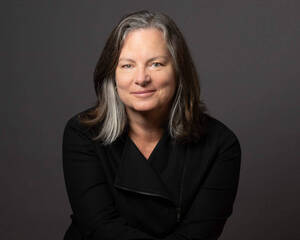
"Working with the NSF CI Compass project was transformative for the Research Data Ecosystem (RDE) team. Their expertise guided us through the intricate compliance requirements of FISMA, helping us to think about different ways to manage the nuances. Beyond compliance, their insights on the NSF CC* solicitation were invaluable, helping us shape an idea that aligns with NSF’s goals and our institutional needs. The CI Compass team’s knowledge and willingness to share best practices made a tangible difference in our work, and we look forward to continuing this impactful partnership."
- Jeannette Jackson, Managing Director, Research Data Ecosystem, NSF MSRI-2 #1946932: October 2024
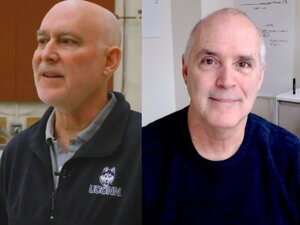
"The Network for Advanced NMR (NAN), an NSF mid-scale RI-2 project, has been working with various CI Compass Working Groups since March 2022. Since that time, we have availed ourselves of the rich sources of information provided around such topics as identity, security, F.A.I.R., data lifecycle and others. Whether directly involved and evaluating our approaches, or simply listening in to keep abreast of areas we may soon encounter, contact with the working groups’ members and exposure to operating NSF Major Facilities has saved us considerable time and effort. It has become an excellent way for us to gauge the expectations of NSF around cyberinfrastructure, and to contribute our own questions and ideas to help clarify and enhance the experience for all of us. This is truly a collaborative endeavor, and we look forward to continuing with it well into the future."
– Chris Bontempi, Director of IT, NAN, and Jeff Hoch, Director of NAN. Testimonial given: February 2023

"[In regards to the RCRV On-Board Cyberinfrastructure plan review provided by CI Compass to OSU RCRV in advance of the 2022 Cyberinfrastructure for NSF Major Facilities Workshop]: "One of the primary concerns identified by the review was that the planned 1GbE switch ports in the ship’s computer lab should be supplemented with 10 GbE and higher to support deployment of visiting equipment with high-speed network interfaces. Thanks to the CI Compass team for identifying this as something to address now before delivery of the vessel. In the engagement, we planned for future upgrades, and to have sufficient fiber between the network core and the computer lab to support the upgrade. Coincidentally, I had a chance to visit the RV Sikuliaq (Research Vessel) while it was in Newport recently (our network architecture was modeled after RV Sikuliaq). While aboard, Ethan Roth, RV Sikuliaq’s Marine and Technical Services Manager, explained that they recently upgraded their edge switching throughout the vessel and incorporated switches with 2.5 & 5 GbE multi-gigabit equipment in lab spaces. A nice piece of corroborating evidence demonstrated on RV Sikuliaq! The CI Compass review, together with Ethan’s report from the field, will be a critical part of the justification I provide to support the specification update and procurement."
– Chris Romsos, Datapresence Systems Engineer with Regional Class Research Vessel (RCRV), College of Earth, Ocean, and Atmospheric Sciences (CEOAS), Oregon State University. Testimonial given: April 2022

“We appreciate CI Compass' input on the streaming database technology for the LIGO project. CI Compass' insights on performance evaluation solutions helped us make the decision on the technology that best fits our needs.”
– Jameson Rollins, LIGO Caltech, Testimonial given: November 2022

"I was invited to join the NSF CI Compass Cloud Infrastructure Working Group, which advises the NSF Major Facilities on Cloud Use Cases and Considerations. Cloud computing will play a major role in scientific computing in the coming decade, yet understanding the technical and financial implications of this disruptive technology remains a complex endeavor. This Group has proven immensely valuable in bringing together experts in cloud computing from various disciplines to share expertise and foster collaborations. The NSF Major Facilities will benefit greatly from the Group’s collective advice as they consider the use of platforms."
– Bruce Berriman, Caltech, IPAC NASA Exoplanet Science Institute (NExScI), Keck Observatory Archive (KOA), Testimonial given: November 2022
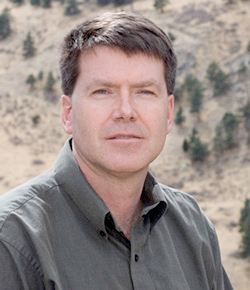
"Overall, the CI CoE was very proactive in enabling and advancing constructive conversations during the development of the NCAR-NEON cyberinfrastructure technical plan and in providing feedback that improved the quality of the plan. The CI CoE facilitated weekly telecons among NCAR, NEON, and the CI CoE to discuss the proposed project and to provide guidance. Discussions during the telecom were mostly high level, helping to identify needs and priorities for the cyberinfrastructure collaborations, but also identifying gaps in the technical plan as well as providing overviews of various alternative implementation strategies. The discussions were always constructive, collaborative, and respectful of all participants. The CI CoE also undertook written feedback on the technical plan at several stages of development. Again, the comments were constructive and improved the quality of the final document. The CI CoE’s engagement was critical to preparing the final technical plan, in part because of the CI CoE’s familiarity with NEON’s data cyberinfrastructure, but also as external computer science experts familiar with the computational needs of the modeling (NCAR) and the data (NEON) and serving to bridge the two different areas of expertise."
– Gordon Bonan, National Center for Atmospheric Research (NCAR), Engagement concluded: October 2021
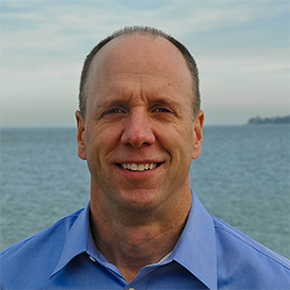
"The CI CoE had four types of profound influence on NEON developers. First, as we transitioned from construction to operations, our developers benefited from greater awareness of the wider NSF CI community practices. Second, deep engagement with CI CoE experts produced three major technologies insertions into NEON CI, remarkably within 6 months. Third, open dialog and prototyping with CI CoE experts affirmed our workflow-based sensor message handling strategy and built our confidence to invest in this novel method. NEON's CI and Data Sciences team mission includes advancing methods and ecological science; interaction with CI CoE nudged our efforts ahead significantly through community workgroup involvement, presentations and publications."
– Tom Gulbransen, NEON, Engagement concluded December 2021
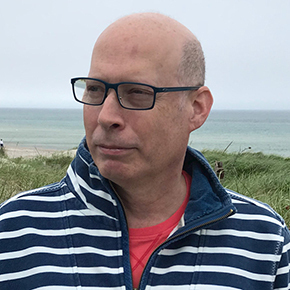
"CI CoE has been a valuable resource for the Ocean Observatories Initiative CI function. Their topics are relevant to our needs and have provided beneficial input to help us reach our goals. I look forward to working with them in the future to continue to meet the unique challenges facing research computing."
– Jeff Glatstein, OOI, Engagement concluded: August 2020
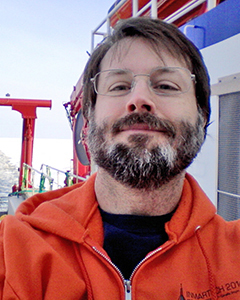
"During the 2020 U.S. Academic Research Fleet Identity Management (IdM) Engagement with CI CoE Pilot, I participated from a customer perspective looking for help solving a complex and custom Identity Management problem on behalf of the fleet. The CI CoE Pilot was able to provide access to subject matters expertise for consulting and testing. During the engagement we were able to successfully assess the problem scope, draft a recommended solution, and proof of concept test several components of that solution. Following the engagement we have been able to leverage the recommended solution and newly established relationships from the engagement to write a proposal that would implement a Federated Identity Management solution for the U.S. Academic Research Fleet. Our engagement with CI CoE Pilot has been instrumental in accelerating efforts to realize this much needed service."
– John Haverlack, College of Fisheries and Ocean Science, University of Alaska Fairbanks, U.S. Academic Research Fleet, Engagement concluded August 2020






